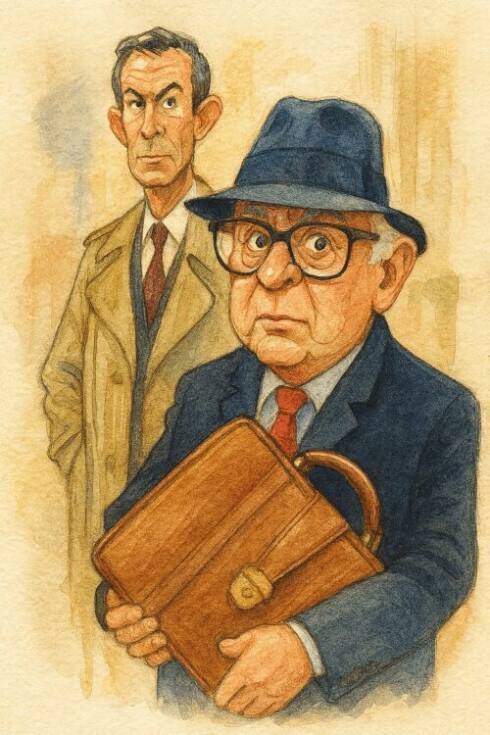4-minute read
Premise
If you’re into tense political thrillers with shadowy moral grey areas, you kept watching The Glory Boys. This three-part BBC miniseries from 1984 packs a punch with slow-burn suspense and tight dialogue. Think of it as a British Cold War spy drama that doesn’t rely on explosions but instead on psychological tension and layered characters. The opening sequence’s haunting theme music and London skyline set a brooding tone, pulling you right into the story. The pacing is deliberate, but you find yourself hooked, wanting to see how loyalties shift and secrets unravel. It’s got that classic ‘80s noir feel—so grab a cuppa and settle in.
Characters
- Professor David Sokarev – The calm Israeli nuclear scientist. His expertise makes him a prime target. He’s cool under pressure but dealing with heavy personal doubts.
- Jimmy – A retired government spy pulled back in to protect Sokarev. His vulnerability and conflicted moral compass add emotional depth.
- Jones – The shady middleman with unclear loyalties. He’s always one step ahead or behind, depending on his mood.
- Helen – Sharp, resourceful, and approachable. She becomes a key player caught in the web of conspiracy.
- Norah – A minor character, but her involvement adds emotional nuance. Also, she reminds us why you don’t trust everyone on TV.
Cultural Impact
This show may not have blown up in the mainstream, but it became a cult favorite among fans who appreciate smart, morally complex storytelling. The gripping performances by Steiger and Perkins fueled conversations and memes long after its broadcast. Its somber, atmospheric tone and resonant themes keep it relevant for Cold War buffs and thriller aficionados. It’s one of those hidden gems that’s more appreciated now than it was in 1984.
Legacy
Despite its modest initial success, The Glory Boys left a lasting mark. It influenced later political thrillers with its cerebral approach and humanized villains. Today, it’s viewed as a forgotten classic—an underrated gem that still holds up, especially for fans craving thoughtful spy dramas. Its reputation as a smart, intense series remains intact.
If You Only Watch One Episode….
Skip straight to Episode 3. It’s the climax, and it’s worth every tense minute. Loyalties clash, secrets explode, and the final confrontation delivers emotional weight and political punch. Plus, the shocking ending sticks with you way longer than you expect. That’s the episode where everything comes together, leaving a lasting impression of just how intense and morally ambiguous this series can be.
